特惠-26考研冲刺
特惠-27考研课
双证-在职硕士
免联考-同等学力
复试分数线
26复试全面指导
模拟复试面试
26考研-全套真题
26考研估分
保研-路线图
27考研-智能择校
27考研-英语测评
27考研-新大纲对比
热门-计算机择校
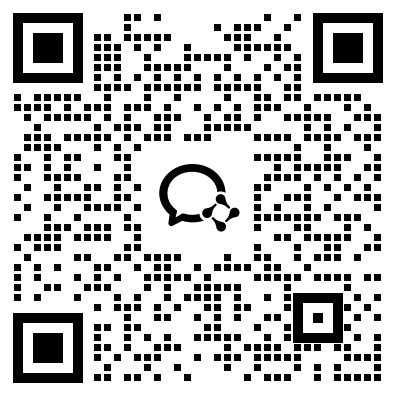
扫码加入训练营
牢记核心词
学习得礼盒
同等学力申硕考试备考阶段,真题是对于大家来说很重要的复习资料。为了帮助大家更好的备考,考试顺利。小编为大家整理了“2018年同等学力申硕英语考试真题4”相关内容,让我们一起来看看吧!
2018年同等学力申硕英语考试真题4
Part IV Cloze (10 points)Directions: In this part, there is a passage with ten blanks. For each blank there are four choices marked, A, B, C, and D. Choose the best answer for each blank and mark your answer on the Answer Sheet.When asked about the impact of disturbing news on children, one mother said: “My 11-year-old daughter doesn´t like watching the news. She has 46 about what she has seen. One time, she watched a report about a person who killed a family member with a knife. That night she dreamed that she too was being killed.” Another interviewee said: “ My six-year-old niece saw reports of tornadoes(龙卷风)from elsewhere in the country. For weeks 47 , she was terrified.
She 48 call me on the phone, convinced that a tornado was coming her way and that she was going to die.”Do you think disturbing news reports can frighten children? In one survey, nearly 40 percent of parents said that their children had been 49 by something they saw in the news and that, 50 , the children had feared that a similar event would happen to them or their loved ones. Why? One factor is that children often51 the news differently from adults. For example, small children may believe that a 52 that is broadcast repeatedly is really happening repeatedly.A second factor is that daily reports of disturbing events can distort a child´s 53 of the world. True, we live in “critical times hard to 54 .” But repeated exposure to disturbing news reports can cause children to develop lasting fears. “Children who watch a lot of TV news 55 to overestimate the occurrence of crime and may perceive the world to be a more dangerous place than it actually is,” observes the Kaiser Family Foundation.
46.A. thoughts B. nightmares C. ideas D. pictures47. A. afterward B. ago C. before D. later48. A. should B. might C. could D. would49. A. bored B. angered C. upset D. disappointed50. A. in no time B. by all means C. all the more D. as a result51. A. tell B. interpret C. narrate D. treat52. A. tragedy B. comedy C. play D. drama53. A. imagination B. view C. sight D. look54. A. give up B. stick to C. deal with D. set down55. A. prefer B. turn C. come D. tendPart V Text Completion (20 points)Directions: In this part there are three incomplete texts with 20 questions (Ranging from 56 to 75)。Above each text there are three or four phrases to be completed. First, use the choices provided in the box to complete the phrases. Second, use the completed phrases to fill in the blanks of the text. Mark your answer on the Answer Sheet.
Text OneA. angrierB. gettingC. actionPhrases:
A. which makes you 56B. like 57 any compensationC. to take any 56Picture this situation: you have bought a faulty item from a shop and you take it back to complain. You go directly to the shop assistant and tell them your problem. They say they cannot help you, 59 to the point perhaps where you start insulting the poor shop assistant. This will do you no favours, 60 , or even your money back. If you go directly to the first person you see, you may be wasting your time as they may be powerless 61 .So the important lesson to be learnt is to make sure firstly that you are speaking to the relevant person, the one who has the authority to make decisions.
Text TwoA. the smallerB. as much asC. up to a yearD. more likelyPhrases:
A. 20% 62 to feel happyB. 63 the physical distance between friendsC. but not 64 happinessD. lasted for 65The new study found that friends of happy people had a greater chance of being happy themselves. And 66 , the larger the effect they had on each other´s happiness. For example, a person was 67 if a friend living within one and a half kilometers was also happy. Having a happy neighbor who lived next door increased an individual´s chance of being happy by 34%. The effects of friends´ happiness 68 . The researcher found that happiness really is contagious (传染的)。Sadness also spread among friendsText ThreeA. later regrettedB. spendingC. tend toPhrases:
A. remember past impulse purchases that you 70B. you may 71 purchase on impulseC. keep 72 under controlIn addition to the external pressure we face from marketing, our own feelings and habits can contribute to excessive spending. Here are some suggestions to help you 73 . First, resist your impulse buying. Do you enjoy the excitement of shopping and finding a bargain? If so, 74 . To resist, slow down and think realistically about the long-term consequences of buying, owning, and maintaining what you are planning to buy. Stop and 75 . Give yourself a “cool down” period before making your final decision.
Paper Two(50minutes)Part VI Translation (10 points)Directions: Translate the following passage into Chinese. Write your answer on the Answer Sheet.
Should work be placed among the cases of happiness or be regarded as a burden? Much work is exceedingly tiresome, and an excess of work causes stress and even disease. I think, however, that, provided work is not excessive in amount, even boring work is less harmful than idleness. We sometimes feel a little relief from work; at other tomes work gives us delight. These feeling arise according to the type of work we are doing and our ability to do that work. Work fills many hours of the day and removes the need to decide what one should do.
Part VII Writing (15 points)Directions: Write a composition in no less than 150 words on the topic: Howcan we contribute to the environmental protection? You should write according to the outline given below. Write your composition on the Answer Sheet.
环境保护已成为我们的共同的责任。
你认为我们该怎样做才能降低能耗,节省资源,保护地球环境?
请举例说明。
以上就是为大家整理的“2018年同等学力申硕英语考试真题4”,希望大家可以更好的利用同等学力申硕真题,做好复习,在接下来的考试中取得满意的成绩!
本文关键字: 同等学力申硕真题
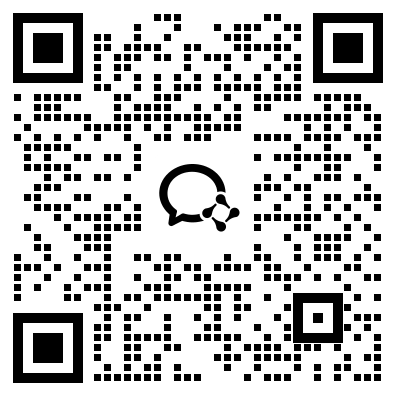
 资料下载
资料下载
2014年-2025年考研历年真题汇总
发布时间:2024-04-25扫码添加【考研班主任】
即可领取资料包
考研大纲PDF电子版下载-历年(附解析)
发布时间:2024-04-25扫码添加【考研班主任】
即可领取资料包
2026年考研政数英备考资料zip压缩包
发布时间:2024-04-25扫码添加【考研班主任】
即可领取资料包
考研英语大纲词汇5500打印版(基础必备)
发布时间:2024-04-25扫码添加【考研班主任】
即可领取资料包
新东方在线考试模拟题【12套】
发布时间:2024-04-25扫码添加【考研班主任】
即可领取资料包
2026年考研专业课知识点总结
发布时间:2024-04-25扫码添加【考研班主任】
即可领取资料包
新东方考研资料下载地址
发布时间:2023-05-17新东方在线考研资料合集
下载方式:微信扫码,获取网盘链接

目录:
1.2013-2023年近10年政数英真题及解析PDF版(新东方)
2.2013-2023年专业课考试历年真题及解析PDF版
3.24考研复习备考资料大合集:大纲+备考资料+词汇书+考前押题+自命题
资料介绍:
1.2013-2023年近10年政数英真题及解析PDF版(新东方)
 、
、
2.2013-2023年专业课考试历年真题及解析PDF版

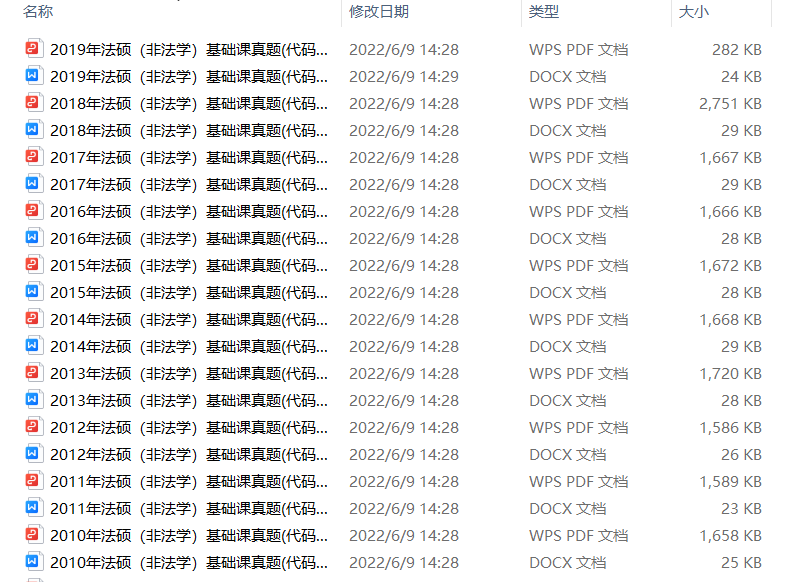
3.24考研复习备考资料大合集
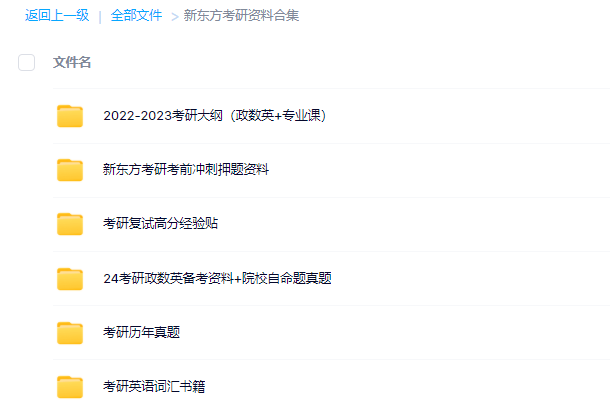
3.24考研复习备考资料:考研大纲
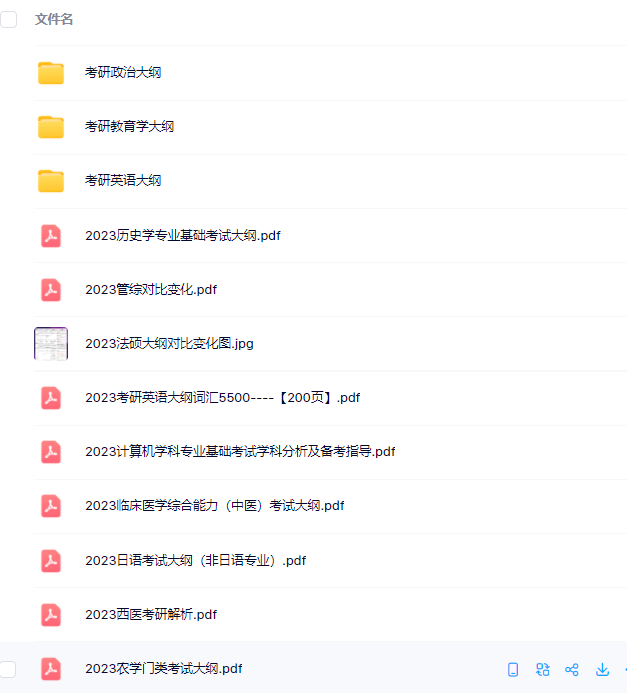
3.24考研复习备考资料:政数英备考资料+自命题真题
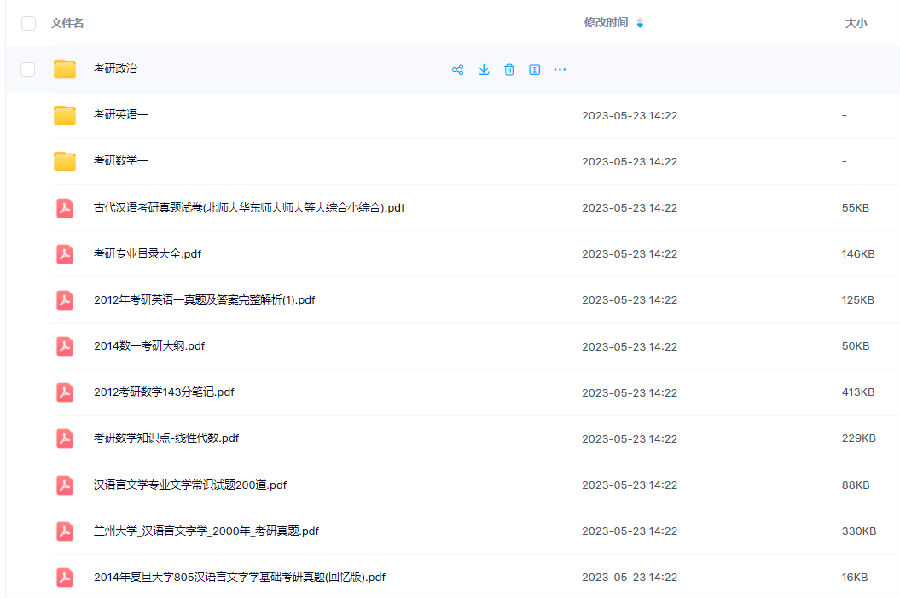
------------------
考研备考过程中,尤其是专业课部分,参考往年的考试真题,对于我们的复习有更好的帮助。北京大学考研真题资料都有哪些?小编为大家进行了汇总。
北京大学考研真题资料-公共课
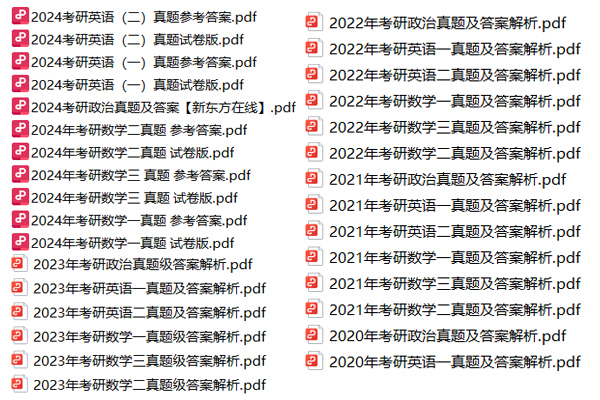
北京大学考研真题资料-专业课


以上就是关于“北京大学考研真题资料下载(历年汇总)”的整理,更多考研资料下载,请关注微信获取下载地址。
2024考研公共课必背知识点汇总
发布时间:2023-01-03扫码添加【考研班主任】
即可领取资料包
2013-2023考研历年真题汇总
发布时间:2023-01-03扫码添加【考研班主任】
即可领取资料包
考研英语大纲词汇(PDF可打印)
发布时间:2023-01-03扫码添加【考研班主任】
即可领取资料包
2024考研专业课知识点总结
发布时间:2023-01-03扫码添加【考研班主任】
即可领取资料包
2023考研政治 内部押题 PDF
发布时间:2022-11-16扫码添加【考研班主任】
即可领取资料包
徐涛:23考研预测六套卷
发布时间:2022-11-16扫码添加【考研班主任】
即可领取资料包
考研政数英冲刺资料最新整理
发布时间:2022-11-16扫码添加【考研班主任】
即可领取资料包
23考研答题卡模板打印版
发布时间:2022-11-16扫码添加【考研班主任】
即可领取资料包
2023考研大纲词汇5500PDF电子版
发布时间:2022-07-28扫码添加【考研班主任】
即可领取资料包
考研历年真题(公共课+专业课)
发布时间:2022-07-28扫码添加【考研班主任】
即可领取资料包
考研英语阅读100篇附解析及答案
发布时间:2022-01-07扫码添加【考研班主任】
即可领取资料包
新东方考研学霸笔记整理(打印版)
发布时间:2022-01-07扫码添加【考研班主任】
即可领取资料包
2001-2021年考研英语真题答案(可打印版)
发布时间:2022-01-07扫码添加【考研班主任】
即可领取资料包
考研英语词汇5500(完整版下载)
发布时间:2022-01-07扫码添加【考研班主任】
即可领取资料包
2022考研政审表模板精选10套
发布时间:2022-01-07扫码添加【考研班主任】
即可领取资料包
历年考研真题及答案 下载
发布时间:2021-12-09扫码添加【考研班主任】
即可领取资料包
考研政审表模板汇总
发布时间:2020-06-17扫码添加【考研班主任】
即可领取资料包
近5年考研英语真题汇总
发布时间:2020-06-17扫码添加【考研班主任】
即可领取资料包
考研英语大纲词汇5500
发布时间:2020-06-17扫码添加【考研班主任】
即可领取资料包
2022考研12大学科专业排名汇总
发布时间:2019-11-21扫码添加【考研班主任】
即可领取资料包
2023考研政治复习备考资料【珍藏版】
发布时间:2019-11-21扫码添加【考研班主任】
即可领取资料包
考研英语万能模板+必备词汇+范文
发布时间:2019-11-21扫码添加【考研班主任】
即可领取资料包
考研数学一、二、三历年真题整理
发布时间:2019-11-21扫码添加【考研班主任】
即可领取资料包

添加班主任领资料
添加考研班主任
免费领取考研历年真题等复习干货资料

 推荐阅读
推荐阅读
同等学力申硕考试备考阶段,真题是对于大家来说很重要的复习资料。为了帮助大家更好的备考,考试顺利。小编为大家整理了同等学力真题法
来源 : 网络 2022-08-11 08:29:00 关键字 : 同等学力申硕真题
同等学力申硕考试备考阶段,真题是对于大家来说很重要的复习资料。为了帮助大家更好的备考,考试顺利。小编为大家整理了同等学力申硕考
来源 : 网络 2022-08-12 08:29:00 关键字 : 同等学力申硕真题
同等学力申硕考试备考阶段,真题是对于大家来说很重要的复习资料。为了帮助大家更好的备考,考试顺利。小编为大家整理了同等学力申硕考
来源 : 网络 2022-08-12 08:29:00 关键字 : 同等学力申硕真题
同等学力申硕考试备考阶段,真题是对于大家来说很重要的复习资料。为了帮助大家更好的备考,考试顺利。小编为大家整理了同等学力申硕考
来源 : 网络 2022-08-12 08:29:00 关键字 : 同等学力申硕真题
同等学力申硕考试备考阶段,真题是对于大家来说很重要的复习资料。为了帮助大家更好的备考,考试顺利。小编为大家整理了同等学力申硕考
来源 : 网络 2022-08-12 08:29:00 关键字 : 同等学力申硕真题

 资料下载
资料下载
扫码添加【考研班主任】
即可领取资料包
扫码添加【考研班主任】
即可领取资料包
扫码添加【考研班主任】
即可领取资料包
扫码添加【考研班主任】
即可领取资料包
扫码添加【考研班主任】
即可领取资料包
扫码添加【考研班主任】
即可领取资料包
新东方在线考研资料合集
下载方式:微信扫码,获取网盘链接

目录:
1.2013-2023年近10年政数英真题及解析PDF版(新东方)
2.2013-2023年专业课考试历年真题及解析PDF版
3.24考研复习备考资料大合集:大纲+备考资料+词汇书+考前押题+自命题
资料介绍:
1.2013-2023年近10年政数英真题及解析PDF版(新东方)
 、
、
2.2013-2023年专业课考试历年真题及解析PDF版


3.24考研复习备考资料大合集

3.24考研复习备考资料:考研大纲

3.24考研复习备考资料:政数英备考资料+自命题真题

------------------
考研备考过程中,尤其是专业课部分,参考往年的考试真题,对于我们的复习有更好的帮助。北京大学考研真题资料都有哪些?小编为大家进行了汇总。
北京大学考研真题资料-公共课

北京大学考研真题资料-专业课


以上就是关于“北京大学考研真题资料下载(历年汇总)”的整理,更多考研资料下载,请关注微信获取下载地址。
扫码添加【考研班主任】
即可领取资料包
扫码添加【考研班主任】
即可领取资料包
扫码添加【考研班主任】
即可领取资料包
扫码添加【考研班主任】
即可领取资料包
扫码添加【考研班主任】
即可领取资料包
扫码添加【考研班主任】
即可领取资料包
扫码添加【考研班主任】
即可领取资料包
扫码添加【考研班主任】
即可领取资料包
扫码添加【考研班主任】
即可领取资料包
扫码添加【考研班主任】
即可领取资料包
扫码添加【考研班主任】
即可领取资料包
扫码添加【考研班主任】
即可领取资料包
扫码添加【考研班主任】
即可领取资料包
扫码添加【考研班主任】
即可领取资料包
扫码添加【考研班主任】
即可领取资料包
扫码添加【考研班主任】
即可领取资料包
扫码添加【考研班主任】
即可领取资料包
扫码添加【考研班主任】
即可领取资料包
扫码添加【考研班主任】
即可领取资料包
扫码添加【考研班主任】
即可领取资料包
扫码添加【考研班主任】
即可领取资料包
扫码添加【考研班主任】
即可领取资料包
扫码添加【考研班主任】
即可领取资料包

 阅读排行榜
阅读排行榜
 相关内容
相关内容